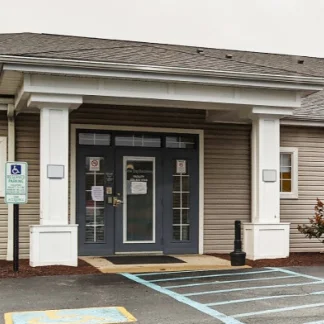The Counseling Center of Columbiana County
The Counseling Center of Columbiana County is located in East Liverpool, Ohio. T...
The New Day Recovery Medical Detox Center in Rogers, OH offers full spectrum detox wraparound services to adults. This accredited detox center’s multidisciplinary team delivers addiction treatment that helps patients lead a life of sobriety.
NewDay Recovery’s focus is on creating individualized treatment plans that include various levels of care including:
NewDay Recovery’s central specializes in providing medically monitored detoxification. The detox program at NewDay uses evidence based medical interventions to mitigate withdrawal symptoms while ensuring a secure and comfortable environment where patients can begin their recovery.
Following detoxification, patients transition into NewDay Recovery’s inpatient drug rehab program. This comprehensive residential program provides a structured environment conducive to recovery.
As part of its treatment spectrum, NewDay Recovery offers medication assisted treatment (MAT). This approach combines FDA approved medications with counseling and behavioral therapies to effectively treat substance use disorders, alleviate withdrawal symptoms, and manage cravings.
In addition to conventional treatments, NewDay Recovery utilizes holistic therapies. These therapeutic techniques, which may include mindfulness, yoga, or art therapy, aim to nurture the overall well being of individuals, addressing their mental, physical, and spiritual health.
To support long term recovery, NewDay offers extensive aftercare planning, including outpatient treatment, ongoing counseling, and supportive community resources.
Contact us for more information: (330) 953-3300

Connect with New Day Recovery - Medical Detox Center by calling their admissions team directly.
(330) 953-3300 Website Get DirectionsThe Commission on Accreditation of Rehabilitation Facilities (CARF) is a non-profit organization that specifically accredits rehab organizations. Founded in 1966, CARF's, mission is to help service providers like rehab facilities maintain high standards of care.
CARF Accreditation: Yes
LegitScript has reviewed New Day Recovery – Medical Detox Center as part of their certification program, and has determined that it meets the LegitScript standards for legality, safety and transparency.
LegitScript verified in July 2020
Group therapy is any therapeutic work that happens in a group (not one-on-one). There are a number of different group therapy modalities, including support groups, experiential therapy, psycho-education, and more. Group therapy involves treatment as well as processing interaction between group members.
In individual therapy, a patient meets one-on-one with a trained psychologist or counselor. Therapy is a pivotal part of effective substance abuse treatment, as it often covers root causes of addiction, including challenges faced by the patient in their social, family, and work/school life.
Life skills trainings involve all the skills a person must have in order to function successfully in the world. These include time management, career guidance, money management, and effective communication. Truly successful addiction recovery is based on the ability to not only live substance-free, but to thrive. Life skills teaches the practical necessities of functioning in society, which sets clients up for success in life, and therefore sobriety.
Nutrition therapy, aka medical nutrition therapy (MNT), is a way of treating physical, emotional, and medical conditions through diet. Specific dietary plans are designed by professional nutritionists or registered dietitians, and patients follow them in order to positively affect their physical and mental health.
In individual therapy, a patient meets one-on-one with a trained psychologist or counselor. Therapy is a pivotal part of effective substance abuse treatment, as it often covers root causes of addiction, including challenges faced by the patient in their social, family, and work/school life.
Life skills trainings involve all the skills a person must have in order to function successfully in the world. These include time management, career guidance, money management, and effective communication. Truly successful addiction recovery is based on the ability to not only live substance-free, but to thrive. Life skills teaches the practical necessities of functioning in society, which sets clients up for success in life, and therefore sobriety.
Nutrition therapy, aka medical nutrition therapy (MNT), is a way of treating physical, emotional, and medical conditions through diet. Specific dietary plans are designed by professional nutritionists or registered dietitians, and patients follow them in order to positively affect their physical and mental health.
Life skills trainings involve all the skills a person must have in order to function successfully in the world. These include time management, career guidance, money management, and effective communication. Truly successful addiction recovery is based on the ability to not only live substance-free, but to thrive. Life skills teaches the practical necessities of functioning in society, which sets clients up for success in life, and therefore sobriety.
Nutrition therapy, aka medical nutrition therapy (MNT), is a way of treating physical, emotional, and medical conditions through diet. Specific dietary plans are designed by professional nutritionists or registered dietitians, and patients follow them in order to positively affect their physical and mental health.
Nutrition therapy, aka medical nutrition therapy (MNT), is a way of treating physical, emotional, and medical conditions through diet. Specific dietary plans are designed by professional nutritionists or registered dietitians, and patients follow them in order to positively affect their physical and mental health.
The Counseling Center of Columbiana County is located in East Liverpool, Ohio. T...
PsyCare – Calcutta Family Care is a private rehab located in East Liverpool, Ohi...
Calcutta VA Multi-Specialty Outpatient Clinic provides primary health care to el...